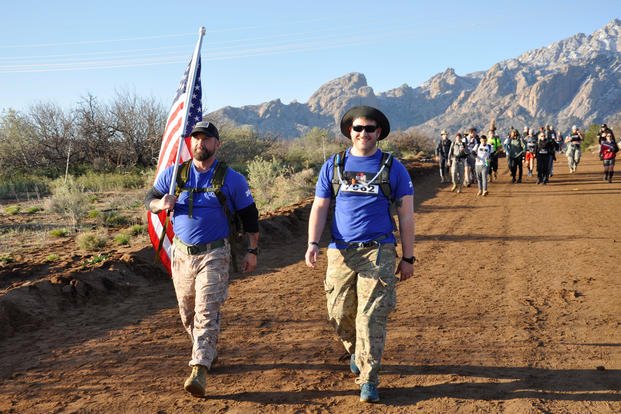Retired Army Lt. Col. Mike Richardson is vice president of Independence Services and Mental Health at Wounded Warrior Project.
Medical research, scientific reports and testimonials from veterans and families of suicide victims have thoroughly documented the need for providing mental health services to veterans.
Sadly, our nation is in the middle of a mental health epidemic with approximately 20 veterans dying by suicide every day. We know veterans coping with post-traumatic stress disorder (PTSD) and traumatic brain injuries (TBI) would benefit from effective care that is anchored in evidence-based treatments with alternative and complementary therapies, but first they must overcome the stigma of seeking mental health care.
That stigma is not solely a veteran issue. It is prevalent in civilian society and amplified in military culture because of the value placed on mental toughness, physical strength and stoicism.
It is widely known and accepted that many veterans have delayed seeking mental health care to avoid being labeled as weak, broken or mentally ill. These same warriors would not think twice about seeking treatment for a broken bone or cancer, and they should feel equally free from stigma when seeking help for an injured mind.
Stigma is a complex issue. At Wounded Warrior Project, we focus on it at the societal level and at the internalized, individual level.
Societal-level stigma is communicated largely through mass media and advertising. While we are beginning to see a change in how entertainment media represents active-duty service members, the same does not hold true for combat veterans, who are generally depicted through the lens of PTSD and portrayed as ticking time bombs.
The unstable, angry and violence-prone veteran remains a cliché in too many movies and television programs. This stereotype is reinforced by news stories that too quickly jump to conclusions about violent crimes involving veterans. The reality is that these events represent a significantly small minority of service members. Most military members, including those with PTSD, serve their country with honor and return to be productive citizens who are assets to and leaders within their communities. Sensationalized headlines that overplay military experience may increase stigma when such stories correlate violence with PTSD and military service.
There is no question that mass media is a powerful force in our society, and its messages influence our thoughts. For those who are thinking of reaching out for mental health care, stereotypes can be extremely damaging and might lead to the second and more harmful form of stigma: internalized stigma. When veterans are constantly exposed to such messaging, there is a potential for stigmas to be believed and internalized. Once these stigmatizing messages are internalized, they can become entrenched in a person's identity and become harder to dispute and eventually remove.
One efficient and powerful way to overcome stigma is to elevate veterans' voices in the national discussion. PTSD can be treated and managed because treatment and engagement absolutely work. Veterans who have successfully completed PTSD therapy can assist others by sharing their personal experiences of overcoming barriers and obtaining mental health assistance.
These veterans can be powerful agents of change and peer mentors to fellow veterans in need. Wounded Warrior Project has witnessed the life-changing effects of peer mentors sharing their challenges and stories of recovery with their brothers and sisters. Many times, these shared experiences and honest interactions serve as a catalyst for veterans to challenge stigma, normalize mental health care, and seek help.
As a veteran community, it is essential that we empower veterans who are further along their paths of recovery to assist veterans who are reluctant to seek care. Modeling the healing process personalizes and normalizes the experience. Veteran service organizations can act as force multipliers by delivering messages that counter the effects of stigmatization and show the act of seeking care in a positive light. Working together, we must begin to change the narrative around mental health care.
Veterans who need assistance should contact the Wounded Warrior Project resource center.
-- The opinions expressed in this op-ed are those of the author and do not necessarily reflect the views of Military.com. If you would like to submit your own commentary, please send your article to opinions@military.com for consideration.















